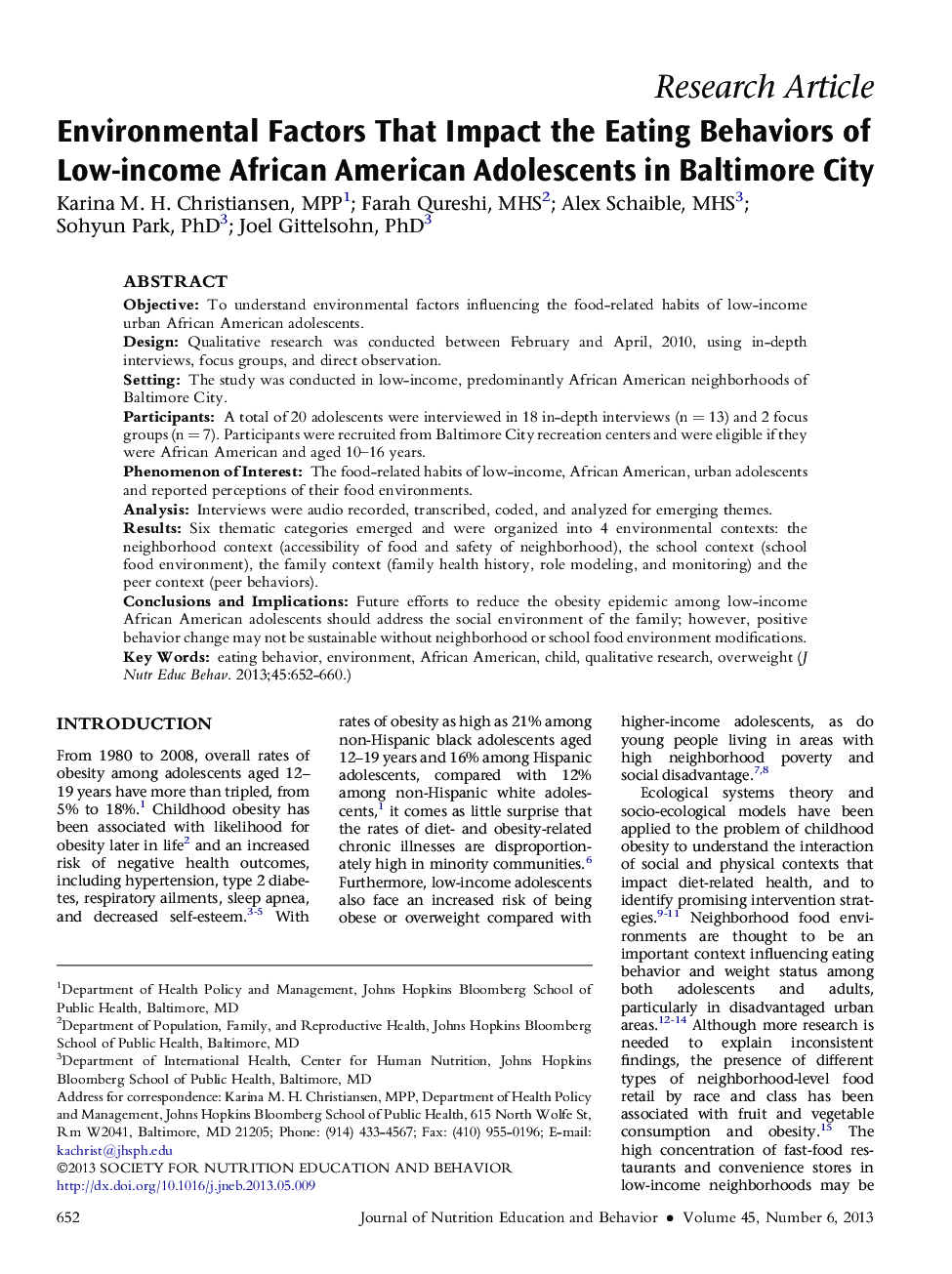| Article ID | Journal | Published Year | Pages | File Type |
|---|---|---|---|---|
| 362011 | Journal of Nutrition Education and Behavior | 2013 | 9 Pages |
ObjectiveTo understand environmental factors influencing the food-related habits of low-income urban African American adolescents.DesignQualitative research was conducted between February and April, 2010, using in-depth interviews, focus groups, and direct observation.SettingThe study was conducted in low-income, predominantly African American neighborhoods of Baltimore City.ParticipantsA total of 20 adolescents were interviewed in 18 in-depth interviews (n = 13) and 2 focus groups (n = 7). Participants were recruited from Baltimore City recreation centers and were eligible if they were African American and aged 10–16 years.Phenomenon of InterestThe food-related habits of low-income, African American, urban adolescents and reported perceptions of their food environments.AnalysisInterviews were audio recorded, transcribed, coded, and analyzed for emerging themes.ResultsSix thematic categories emerged and were organized into 4 environmental contexts: the neighborhood context (accessibility of food and safety of neighborhood), the school context (school food environment), the family context (family health history, role modeling, and monitoring) and the peer context (peer behaviors).Conclusions and ImplicationsFuture efforts to reduce the obesity epidemic among low-income African American adolescents should address the social environment of the family; however, positive behavior change may not be sustainable without neighborhood or school food environment modifications.
